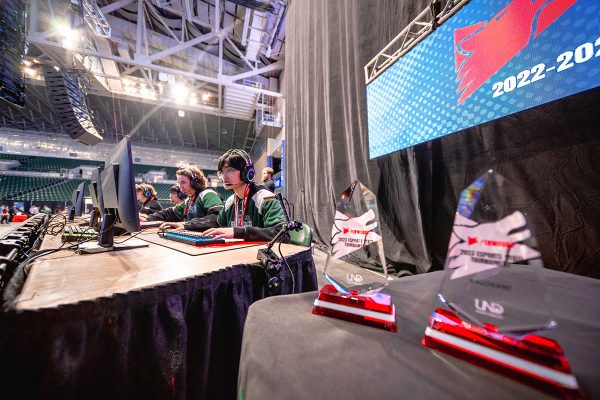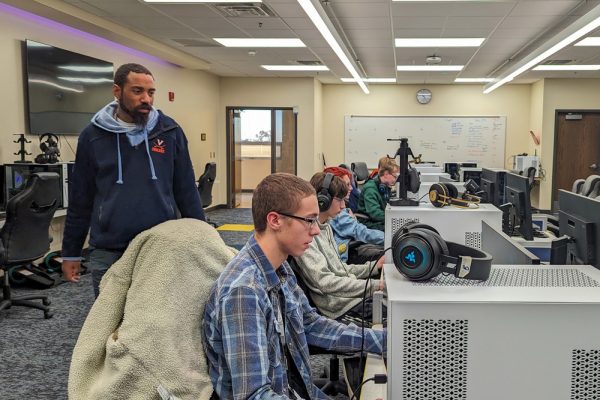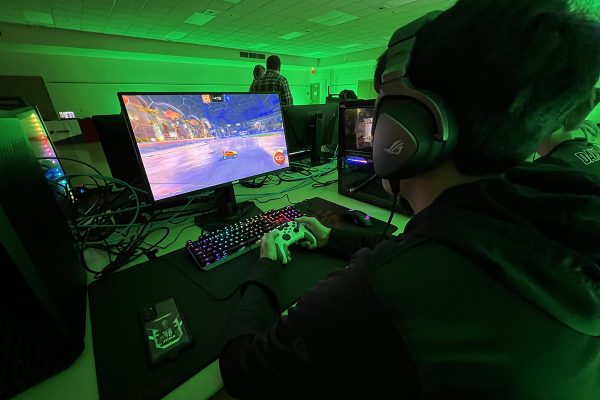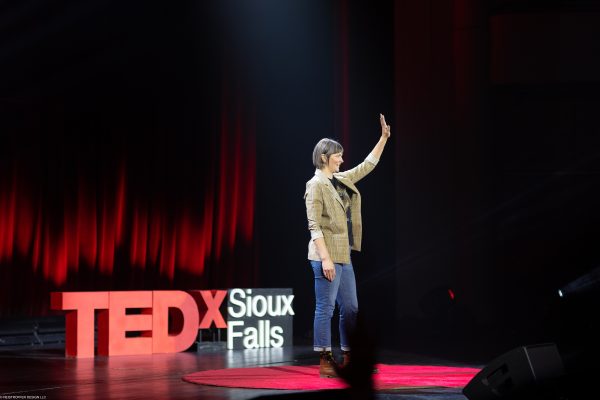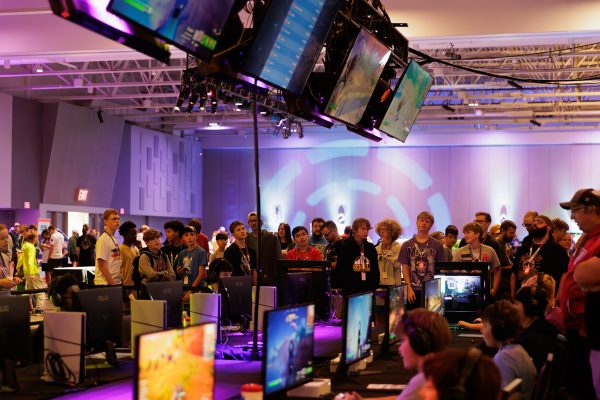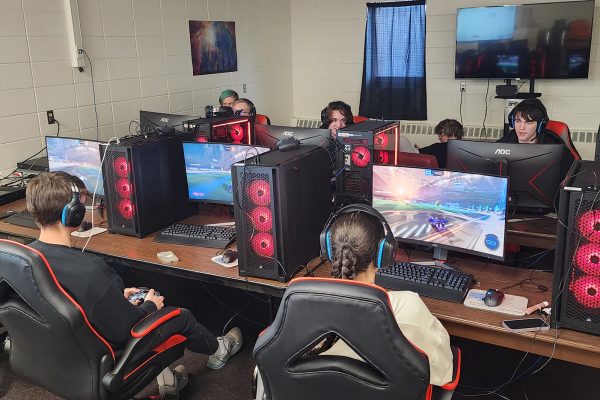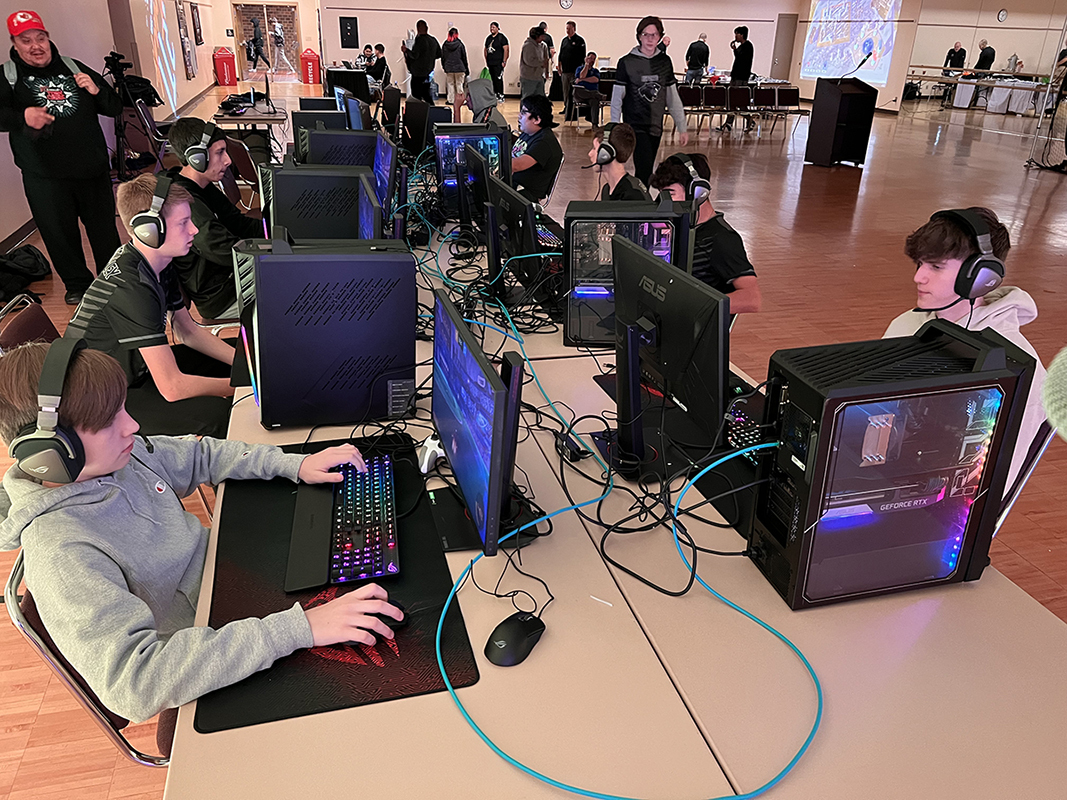
It’s a busy Friday morning in late December during the Lakota Nation Invitational in Rapid City, and high school basketball players and their fans have taken over the main floor of The Monument for the prestigious annual tournament.
But upstairs, a different kind of sport is happening, as the first LNI STEM Esports Workshop & Seminar draws students from South Dakota high schools who hope to hone their skills and demonstrate why esports is more than just a hobby.
These are the students who typically are on the sidelines when it comes to high school sports, and esports gives them a chance to represent their school, develop new friendships, and learn leadership and technological skills that will benefit them when they enter the job market, supporters say.
“It IS a sport,” said Dakota Valley esports coach Michael Oberg, who attended the LNI event with his team from North Sioux City.
Oberg said esports teach things that all sports instill in students, from teamwork, leadership, social skills, sportsmanship and hand-eye coordination.
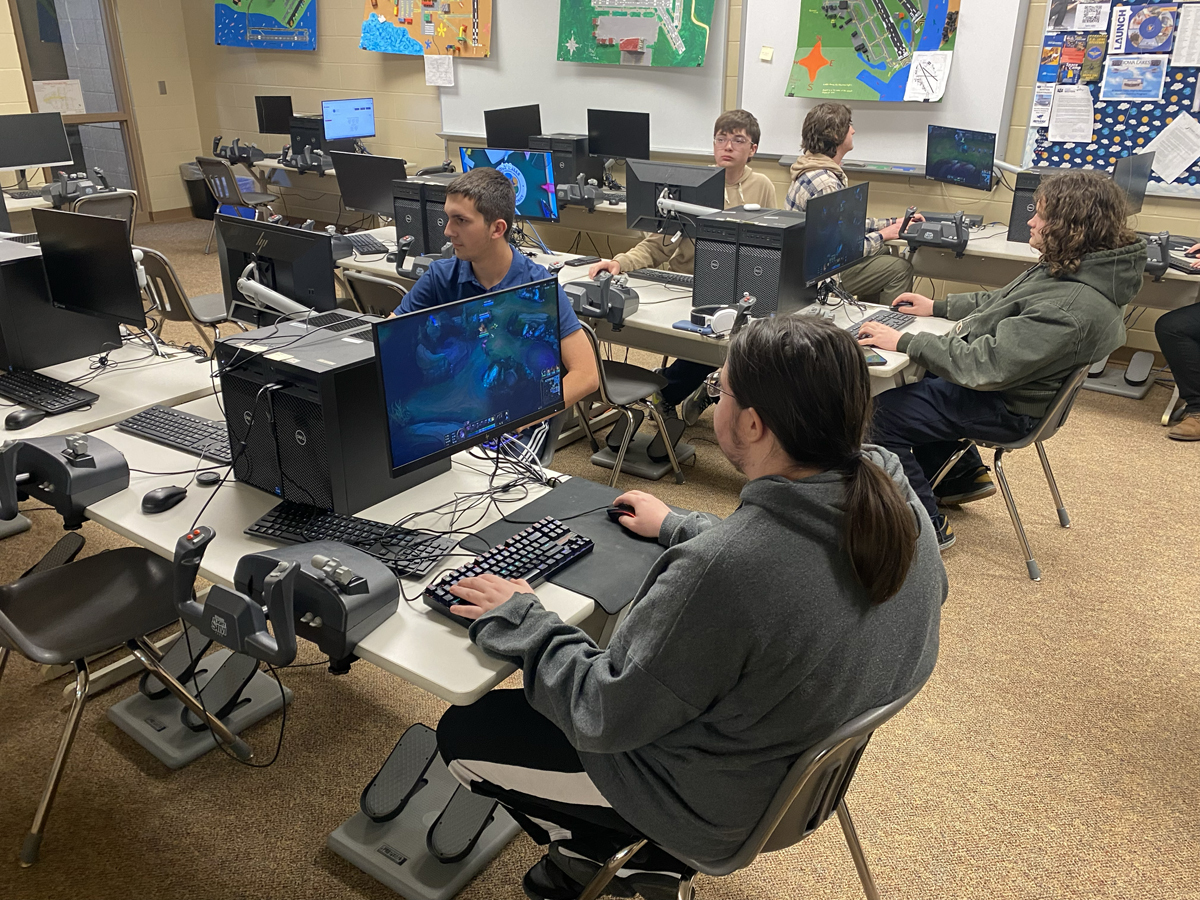
The South Dakota High School Activities Association certainly agrees esports is a sport, as it will join a list that includes football, volleyball and golf as sanctioned activities in 2024-25. In the meantime, 20 schools are taking part in the pilot season with the state tournament being held March 22-23 at South Dakota State University. The event is sponsored by SDN Communications, a business internet provider in South Dakota and southwestern Minnesota.
Esports growing fast on a national and local level
Esports, or electronic sports, are video games played in organized and competitive matches. It has grown into a multi-billion dollar industry.
Many events are streamed on Twitch, an interactive live streaming service, and fans watch from around the world. Professional players and teams also fill arenas and collect hefty salaries as they compete in esports titles like League of Legends and Valorant.
MORE ESPORTS: How South Dakota internet providers are stepping up to help
While the professional esports world is flourishing, so too are the amateur, collegiate and high school levels. Educators have recognized the value of esports for their students — more than 170 universities in the country have programs. Twenty schools in South Dakota – ranging in size from Sioux Falls to Northwestern High School – have signed up for the pilot season of esports. More are considering joining when the sport is sanctioned by the South Dakota High School Activities Association in 2024-25.
A recent study in the United Kingdom found that online gaming “can actually help professionals develop a more refined skill set for their chosen field.” The study found that IT professionals and engineers gravitated toward puzzle-platform games that enhance spatial skills. “People working in managerial roles, meanwhile, displayed more interest toward action roleplaying games that require both organizational and planning skills,” according to the study.
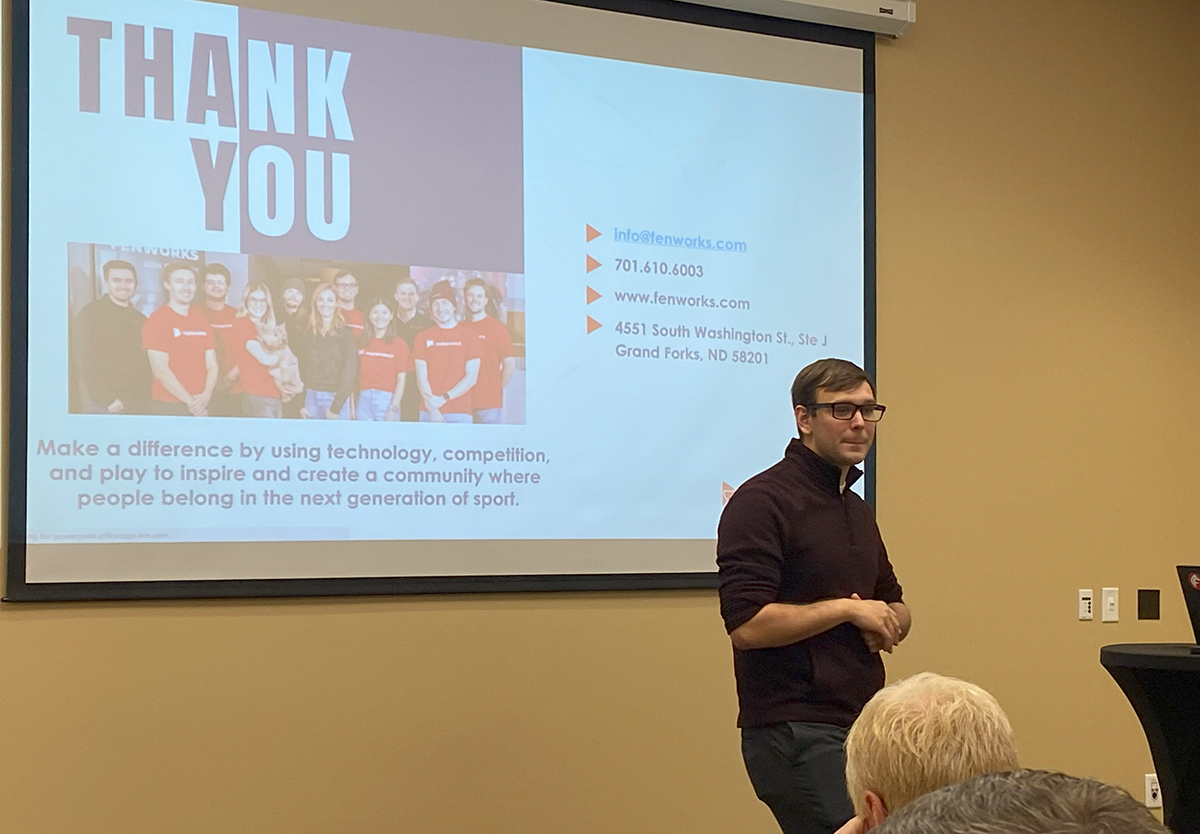
You would be hard-pressed to find someone as passionate about esports as Kaleb Dschaak, the CEO of North Dakota-based Fenworks, which organizes and facilitates tournaments for SDHSAA and others.
Ask him why esports are important for students and he will give you a dozen reasons.
“Our job is to make sure that every kid has a place to belong and is doing an activity that matters to them,” he said.
During Dschaak’s presentations about high school esports, he stresses that kids looking for high-tech activities generally only have one option, and that’s robotics. With AI and computing advancing as fast as it is, students need to be engaged in related activities to get them ready for the workplace and the modern world.
MORE ESPORTS: What to know about South Dakota's newest prep sport
“High-tech activities are the solution for a lot of our challenges,” he said. “Since COVID, we have seen engagement and participation in school activities decline drastically – 400,000 fewer students are engaged now than pre-COVID. Activities are one of the best mechanisms to engage our young people and get them connected. The problem is we haven’t innovated in so long in our activities space.”
‘The social skills these kids are getting are unbelievable’
Back at the LNI event in Rapid City, about a dozen students have intense expressions as they look at their monitors. Each wears a headset, allowing them to talk directly to their teammates as they compete.
Today, the students are playing Rocket League, a 3-vs-3 soccer game with virtual cars rather than people. Some of the players are from Dakota Valley, while others are from Lakota Tech High School, coached by coordinator Yamni Jack.
During the second matchup of the day, the Dakota Valley team sees an opportunity to score on their opposition. Players call out strategy to each other. “Alright, centering,” said one player. There’s a pause and then a goal. “Good job,” the players tell each other, bumping knuckles before returning immediately to the game.
Oberg’s team, which was formed Nov. 3, consists of 28 students. The team practices in the school’s esports practice room, created specifically for them. Under the supervision of Oberg, the school’s IT director, the team members built their computer systems before starting to practice or compete. Doing so added another level to the team’s expertise, he said.
“The social skills these kids are getting are unbelievable,” Oberg said. “They have team captains and are learning leadership skills.” They are also learning to communicate and work together as a team. “That’s so important, that team dynamic."
Just as he would to a football or basketball team, Oberg said he emphasizes sportsmanship to his players.
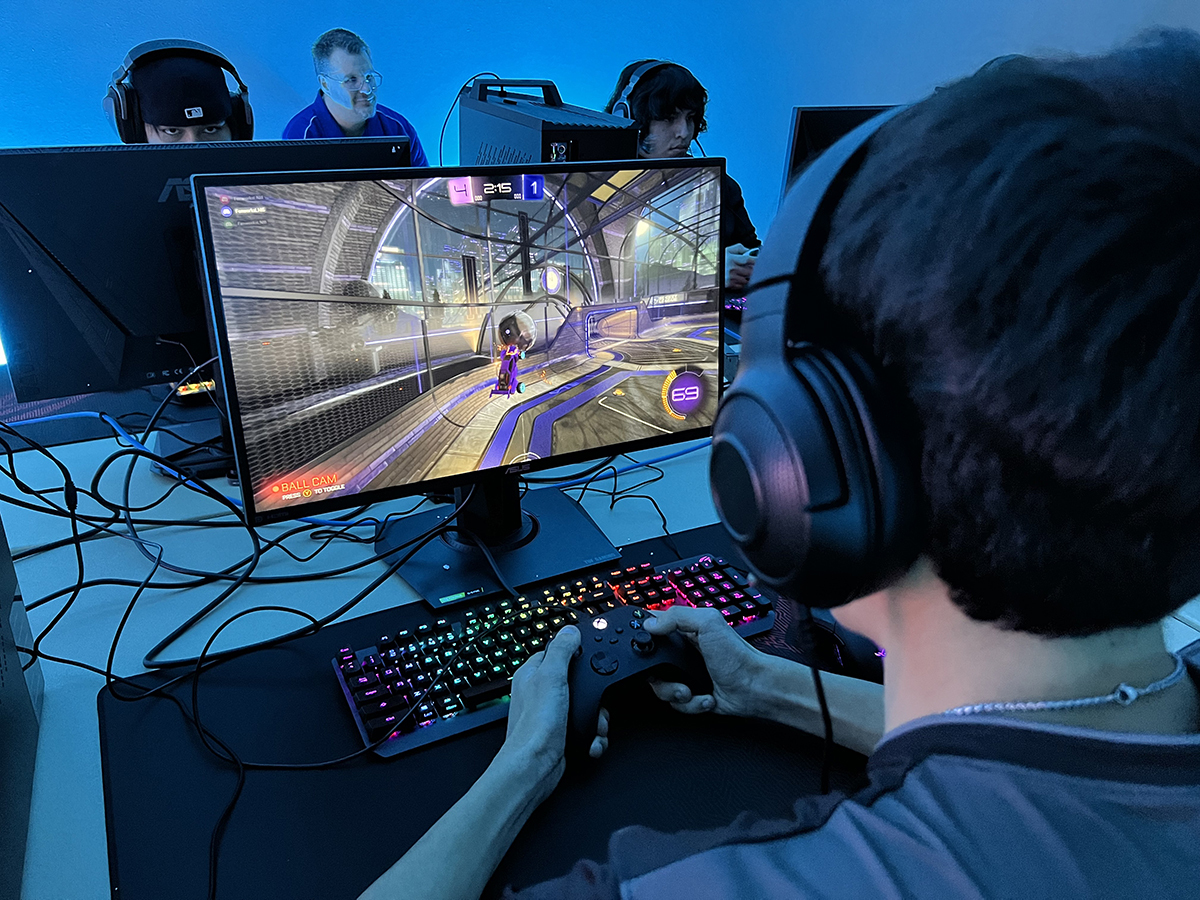
“If you win big, you’re humble. If you lose, you show pride,” he said.
Six of Oberg’s players are seniors this year. Three of those have indicated that the university they choose must include an esports program. That’s a clear sign that esports has become embedded in the lives of these players and they expect to continue playing into the next stages, Oberg said.
While Oberg understands that some people still view esports as merely playing games, he hopes that they will begin to see the value both for young people now and into the future. “If you don’t change now, you’re going to fall behind,” he said of adopting esports into high school and university programs. “We have to adapt to our youth.”
Kids are already playing video games, Dscaak said, so getting them in the same room, making new friends and enhancing their communication and leadership skills is a win-win.
“Young people are engaged online but they feel less connected,” he said. “We need a way to reach into the online world and pull young people out of it and into the real world.”
That’s happening this year at high schools across the state.
